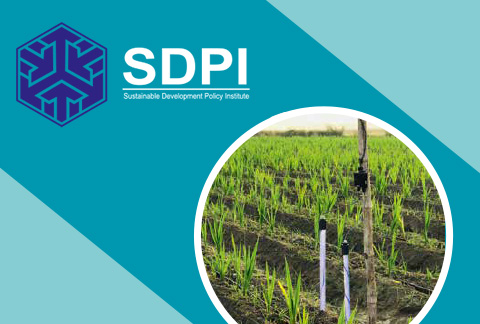
As the World Water Week commences every year in August, we are reminded of this precious shared resource’s vitality. Water is essential for life; farmers need water to grow food, factories need it to operate, and we require it in nearly every aspect of our daily life. Similarly, water forms the backbone of our eco-system, in the absence of which humankind cannot survive.
Similarly, as per UN estimates, the global water demand will exceed supply by 40% by 2030. The climate change problem worsens these grave concerns as the water cycle is expected to undergo significant change in the coming years. Changes in climatic conditions are expected to cause wet areas to become wetter and dry areas to become drier, placing additional stress on the nation's over-utilized water systems as well as water-dependent sectors such as agriculture and industry.
Pakistan is no exception in this regard. The water availability per person is not only low but also the water management is a complex issue.

It is also analyzed that if only the given water resources in the country are managed adequately, the prevailing water issues can be addressed to a greater extent.
We believe Nestlé is well placed to help address the shared environmental challenges since it is dedicated to undertaking a leadership role in water resource management. We realize that in order to conserve water, we must work beyond our factory boundaries and take collective action by collaborating with other partners such as the government, communities, farmers, and academia. Considering this approach, we launched our Caring for Water (C4W) - Pakistan initiative to ensure that we are a responsible steward of water resources. C4W is a blueprint for bringing multiple partners together to discuss and get feedback on existing working strategies and brainstorming new ones. We also encourage more partners to join us and invite new ideas, whether they are related to agriculture, technology, quality of water, or watersheds. With the help of different water saving techniques within our factories, we have been able to reduce our water use per ton of product by 24% between 2013-2019.
Nestlé is also keenly aware about the leading cause of climate change in its operations, namely Greenhouse Gas (GHG) emissions. As per the World Bank, agriculture is responsible for approximately 41% of all GHGs emissions in Pakistan, we are working in our agriculture supply chain to limit these emissions at the farm level. We aim to improve efficiency in livestock systems through animal feeding techniques, improved breeding, manure handling, and management practices to reduce methane and nitrous oxide emissions. By limiting the emission of these GHGs, Nestlé aims to slow the process of climate change.
Another one of Nestlé's approaches to water stewardship is based on its adherence to, and implementation of, the Alliance for Water Stewardship (AWS) Standard. The Standard is a globally recognized framework for water users to understand their water use and impacts, and to work collaboratively and transparently for sustainable water management within a catchment context. AWS guides us in assessing our risks and needs in a way that ensures efficient water stewardship at the factory level and beyond.

With the support of WWF-Pakistan since 2014, we have previously been successful in getting an AWS certification for our factories in Sheikhupura, Islamabad, and Kabirwala, and as of March 2020, we have also received an AWS Certification for our fourth and final factory in Port Qasim. The certification process for the AWS Standard has helped us to broaden and improve our engagement with local stakeholders and reinforced the way we transparently share and improve our watershed data.
Here at Nestlé, we are dedicated to growing sustainably and ensuring that the planet’s resources are used responsibly. We believe that water is a shared resource, which is why it requires collective action to conserve this precious resource.
In Commitment with
 |




